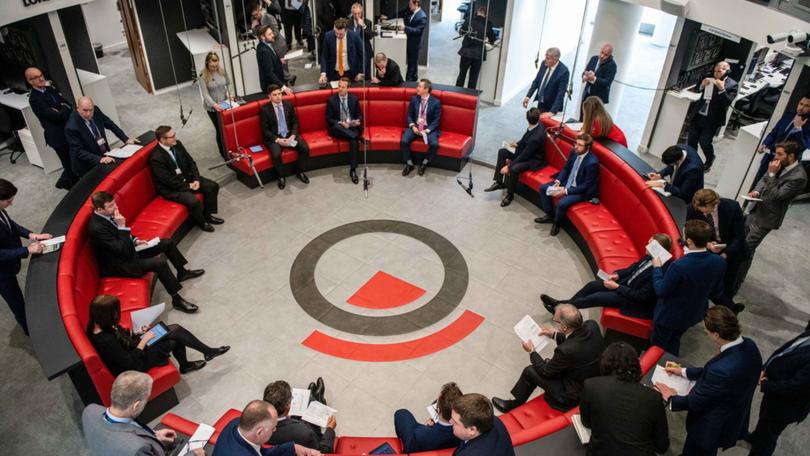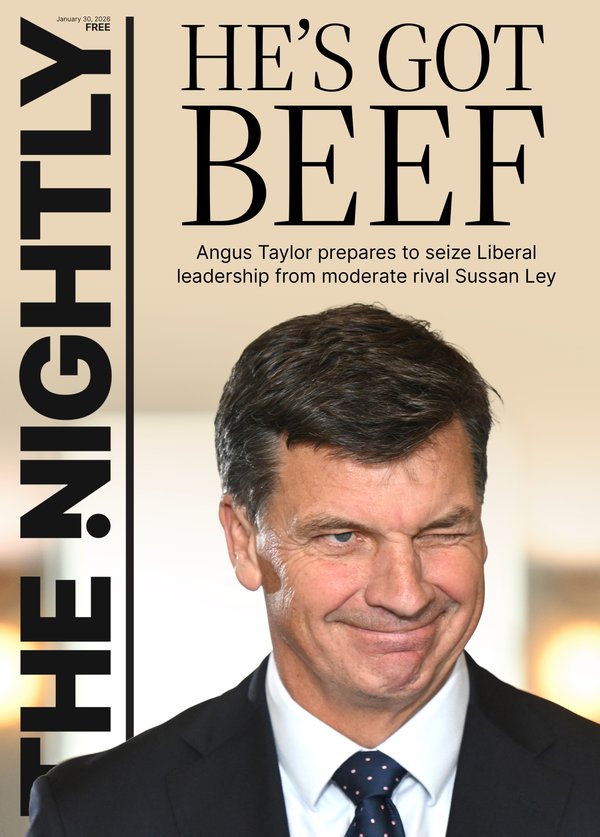Battered nickel among metals to surge on Russia sanctions
Aluminium and nickel surged on the London Metal Exchange as traders responded to new US and UK sanctions that banned deliveries of any Russian supplies produced after midnight on Friday.

Aluminium and nickel surged on the London Metal Exchange as traders responded to new US and UK sanctions that banned deliveries of any Russian supplies produced after midnight on Friday.
The new restrictions, aimed at curbing President Vladimir Putin’s ability to fund his military, inject major uncertainties into metals markets that have already been reshaped in the aftermath of Russia’s invasion of Ukraine.
Aluminum jumped as much as 9.4 per cent, the most since the current form of the contract was launched in 1987, while nickel rose as much as 8.8 per cent. That suggests traders believe that removing one of the largest producers from the market will drive prices higher.
Sign up to The Nightly's newsletters.
Get the first look at the digital newspaper, curated daily stories and breaking headlines delivered to your inbox.
By continuing you agree to our Terms and Privacy Policy.The rally is being fuelled by “worries that the sanctions will reduce Russian flows to Western markets,” said Jia Zheng, head of trading and research at Shanghai Dongwu Jiuying Investment Management. “Any stimulation will be amplified amid an existing bullish backdrop.”
Still, there are also concerns over the prospect of a flood of old Russian metal — which is still permitted — getting dumped onto the LME.
Many of the LME’s dealers and brokers have spent the weekend at work gaming out the market implications of the sanctions. The timing of the news, just ahead of the global copper industry’s annual CESCO Week gathering in Chile, has also made for lively conversations in business class cabins and passport queues as the industry descends on Santiago. In London, the home of the LME, many traders were glued to their screens late on Sunday night.
The scenes are familiar ones — metals traders are hardened to wild swings and long weekends after a period marked by a nickel short squeeze that almost destroyed the LME in March 2022, and sanctions on United Co Rusal International PJSC that caused havoc in 2018.
But traders and executives said that the new restrictions were ultimately unlikely to have as dramatic an impact as those two events.
Russia’s two metal giants, Rusal and MMC Norilsk Nickel PJSC, are much less entangled in the western financial system than they were before the war, and the industry has spent the past two years preparing for the prospect of sanctions.
Still, Russia remains an important producer, accounting for 6 per cent of global nickel supply, 5 per cent of aluminium and 4 per cent of copper. And its role on the LME is even more significant — in nickel for example, Nornickel has long been the largest supplier of refined metal, which is the only form deliverable to the LME.
Since the nickel squeeze, the LME has put daily limits in place that prevent copper and aluminium prices from rising more than 12 per cent in a day, while nickel has a 15 per cent limit.
The escalation of hostilities in the Middle East could also stoke volatility.
“Price-wise, the natural predilection will be higher,” said Alastair Munro, a broker at Marex Group based in London. “But against that, it will be interesting to see if any funds or traders have to reduce positioning because of the increasing volatility.”
Divided market
By targeting supplies of Russian metal produced from April 13 onwards, the sanctions divide the market into three categories: new Russian metal, which is now blocked from delivery to the LME; old Russian metal, produced before April 13; and non-Russian metal.
The LME on Saturday confirmed that “old” Russian metal can continue to be delivered, though the exchange said it would require evidence that the metal was not in breach of sanctions and would approve deliveries on a case-by-case basis.
The LME’s approach is effectively just enforcing the restrictions imposed by the US and UK on Friday.
But it is likely to reignite a debate over whether Russian metal should be banned altogether to protect the exchange’s role as the home of global benchmark prices — by continuing to allow Russian supplies, the likelihood is that the LME’s prices increasingly become the price of “old” Russian metal.
Russian metal already accounted for 91 per cent of LME aluminium stocks at the end of March, 62 per cent of copper and 36 per cent of nickel. Traders are now expecting a wave of deliveries of Russian material that was being held outside the LME system, which could now be dumped onto the exchange as its owners worry about the prospect of future restrictions.
In the aluminium market, estimates of the amount of Russian metal being held outside of the LME system range from a couple of hundred thousand tons to as much as one million tons.
In its notice on Saturday, the LME acknowledged the possibility that the uncertainty caused by the sanctions means “a relatively large supply” of Russian metal could flood onto the exchange.
Limited pool
A wave of Russian supply would be likely to push spot prices down relative to forward contracts — a situation known as contango, that is generally indicative of a well-supplied market. Contangos for copper, aluminium and nickel are already at historically wide levels, in part as a result of the growing share of Russian metal on the exchange that only a limited pool of consumers, traders, and brokers are willing to touch.
For its part, the LME considered banning Russian metal in 2022 and decided against it, arguing that it was still being consumed in the physical market and it wasn’t the exchange’s place to act over and above the requirements of sanctions.
On Saturday, it said it would keep this position under review, but highlighted that traders had continued to take delivery of Russian aluminum from LME warehouses in January, February and March.
The new rules announced Friday also include a provision that will make it easier for traders to take delivery of old Russian metal. While an earlier package of metal sanctions announced by the UK in December originally barred UK persons from requesting delivery of Russian metal from the LME, the government has now removed that restriction as long as the metal was already in the exchange’s system before April 13.
Bloomberg
Originally published as Battered nickel among metals to surge on Russia sanctions
